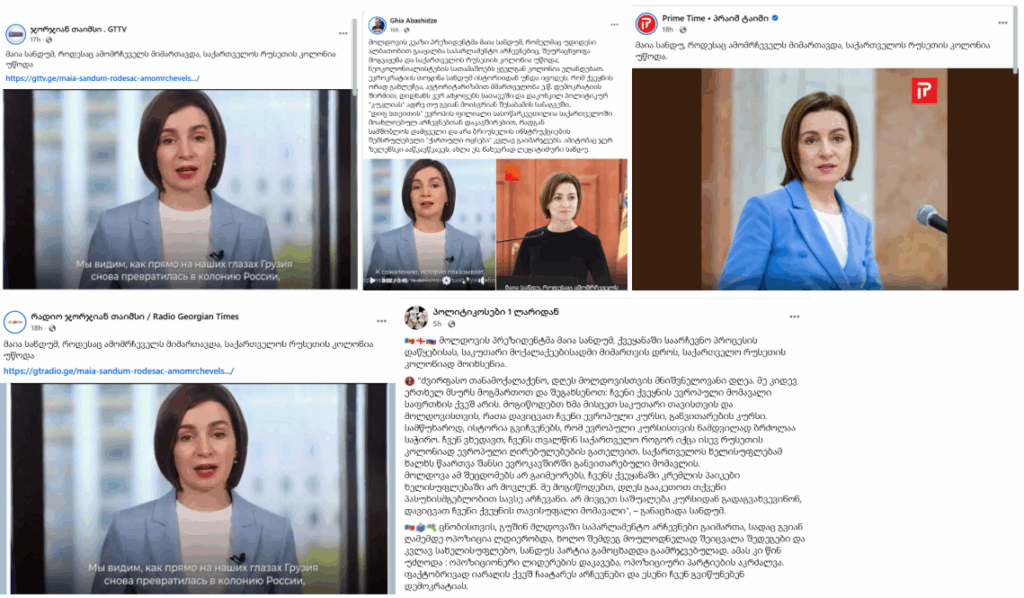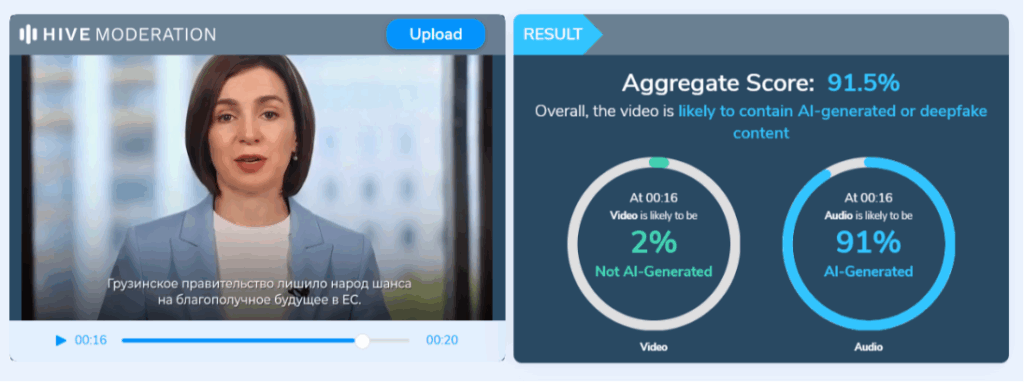The public of Georgia actively opposes the adoption in the first reading of the law “On the transparency of foreign influence”, called the “Russian law”. It is considered analogous to the notorious ban on “foreign agents” in Russia, which actually suppressed the already weak voices of the opposition and ruled out the possibility of the presence of international monitoring missions inside the country. The law, adopted by the Georgian Parliament on March 7, 2023, provides for the creation of a register of “agents of foreign influence”. The authorities will create a special open database of organizations and individuals if the share of foreign investments in their activities is at least 20%. The Ministry of Justice will have the right to “observe” the work of potential “foreign agents” and receive the necessary information, including personal data. It is noteworthy that the voting was held in violation of the rules of parliament without public discussion. There is still a second and third reading, but since the law has the support of the ruling Georgian Dream party, the parliament will probably approve the document.
The law marginalizes key international organizations that monitor rights and freedoms in Georgia. This is exactly what happened in Russia after the adoption of the relevant law in 2012. Also, due to the adoption of the law, funding for opposition media, whose work is supported from abroad, will potentially decrease. In addition, the adoption of the law may indicate the actual departure from the European integration course, which Georgia announced together with Moldova and Ukraine (Associated Trio). The law could deal a blow to the Georgian economy. Georgian entrepreneurs are being helped by a European program to support traditional small and medium-sized businesses (for example, in the distilling industry), and the new law will put this program in jeopardy.
The state has come to the so-called “Yanukovych crossroads”, when society and the authorities have diametrically opposed visions of Georgia’s development, and contradictions peaked after the missed chance for EU membership in July 2022. Against the backdrop of these upheavals, a number of messages appeared on telegram channels broadcasting pro-Russian rhetoric aimed at discrediting the Georgian protest movement. We consider them in more detail below.
The events in Georgia are the beginning of the “color revolution”, the “beautiful life” will soon come, as happened in Ukraine. The term “color revolutions” refers to the most civilized disintegration of the 20th century - the “velvet divorce” of the Czech Republic and Slovakia, where, as a result of the bloodless and democratic Velvet Revolution, the post-communist elites of both parts of Czechoslovakia headed for independence, announced a transition from socialist relations. Currently, “colored” or “velvet” refers to peaceful protests that result in certain political changes. Despite the non-violent nature of the protests, Russian propaganda interprets such revolutions negatively, they mark a departure from the communist course, the dismantling of the socialist system and the transition to democratic governance. Propaganda uses this term in a negative sense, assuring that such protests advocate false values. The mention of Ukraine in a disparaging way reproduces the narrative of condemning the Revolution of Dignity and devaluing its positive consequences. Propaganda claims that due to the removal of Yanukovych from power and following a new pro-European course, the life of Ukrainians has worsened, so they “warn” the Georgians that if the protesters succeed, their society will expect the same thing. Yes, Ukraine had to endure a deep economic crisis in 2014, but at the same time managed to take a confident course towards Euro-Atlantic integration and strengthen its democracy. Russia is afraid of a “velvet divorce” with Georgia, because it does not want to lose it from its field of influence for a number of geopolitical and economic reasons.
Local “Sorosiata” (Soros’s supporters) are trying to prevent the cessation of foreign funding. This message discredits representatives of Georgian civil society who stood up for democracy and ascribes a far-fetched mercantile goal to their actions. The protests in Georgia are not about funding, but about protecting democracy and freedom of speech. Similar assessments were made about the events of the Euromaidan. It seems to be, in particular, a struggle for the opportunity to receive Western “handouts” and grants in exchange for sovereignty. With such statements, propagandists are trying to substitute concepts, calling the struggle for values a struggle for money.
“Verkhniolarsivtsi” (Russins who fled to Georgia through the border crossing point “Verkhnii Lars”) join the ranks of the protesters and chant anti-Russian slogans. With this neologism propagandists call Russians who fled to Georgia in order to avoid mobilization or to avoid reprisals for their anti-war position. In autumn, the line at the “Verkhnii Lars” checkpoint stretched for tens of kilometers, because there were hundreds of thousands of people who wanted to leave Russia. Propaganda claims that the “Verkhniolarsivtsi” have settled down well in their rented apartments, and having lost any sense of shame and dignity, these “traitors” went to the “Georgian Maidan” and chanted slogans insulting to Putin and chanted “Sa-kart-ve- lo”*. This message rather works for the internal Russian audience, forcing once again to condemn those who are hiding from the mobilization.
Local Georgian authorities are out of control. The US State Department is concerned about this fact, therefore it supports the protesters in every possible way, and wants to “calm down” the elite with their hands and direct it to the true path. This message is a classic reproduction of the “external control” narrative carried out by “Western curators” to please the US State Department and powerful international corporations. Propaganda assures: all the events of the Revolution of Dignity were orchestrated from the outside and successfully implemented by local actors from the “Soros structures”. Now Russian propaganda is convincing that the same thing is happening in Georgia: representatives of grant structures allegedly actively oppose the “legitimately elected” government, undermining its authority and the legality of its decisions. The purpose of this message is to disregard the sovereignty of Georgia, leveling the independence of decision-making and discrediting any actions of civil society.
* Sakartvelo is the name of Georgia, which is used by its inhabitants themselves. The name “Georgia” is used by Russia and 20 other states, including Ukraine; in most countries of the world, the name “George” (or its derivatives) is adopted. Against the backdrop of deteriorating relations with Russia and the Russian-Georgian war of 2008, official Tbilisi calls on other states to abandon the name “Georgia” in favor of Sakartvelo or “Heorhia”. Lithuania, Japan, Israel and South Korea have already abandoned the name “Georgia” in official documents.



